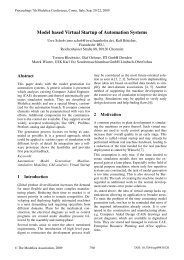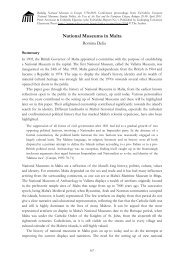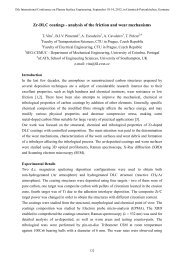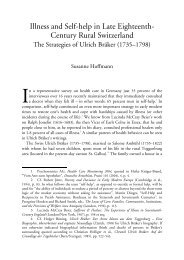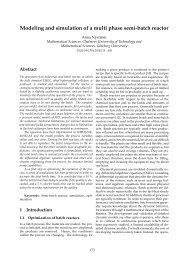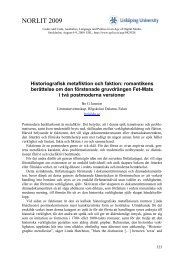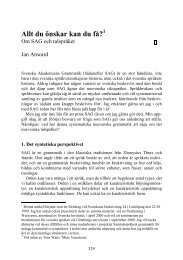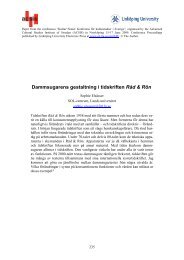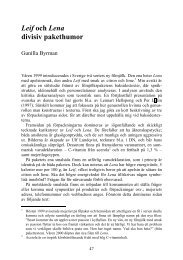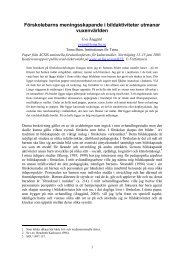Full article (pdf)
Full article (pdf)
Full article (pdf)
You also want an ePaper? Increase the reach of your titles
YUMPU automatically turns print PDFs into web optimized ePapers that Google loves.
International Journal of Ageing and Later Life<br />
in a deterministic way but rather negotiable. Even though the home visitors<br />
represent a health regimen where activity is interpreted as bodily exercise,<br />
they try to avoid the tendency to prescribe for older people. Rather than<br />
prevention in the strict sense, it seems to be a health promotion strategy that<br />
encourages older people to articulate their needs. The meeting between the<br />
health visitor and the older person is characterised by conversations and<br />
negotiations about health, autonomy and bodily experiences.<br />
Keywords: preventive home visits, Foucauldian gerontology, active<br />
ageing, health promotion, biopolitics, health advisors.<br />
Background<br />
In an ageing world, biopolitics interact with life in new ways. It is widely<br />
recognised that expectations about the life course are changing as<br />
demography changes. The prevailing cultural meaning of ageing today is<br />
informed by dominant values of remaining energetic socially, intellectually<br />
and physically (Neilson 2006). A new generation of old people is working<br />
longer, have more resources and may look forward to many healthy active<br />
years, but this requires prevention and health promotion interventions<br />
for the younger elderly. Practices and discourses such as ‘‘anti-ageing,’’<br />
‘‘active ageing’’ and ‘‘healthy ageing’’ can be seen as ways of managing the<br />
population and crafting the experience of being elder, thereby producing<br />
active, healthy and long-living subjects. The concept of active ageing is well<br />
rehearsed as part of a ‘‘new paradigm’’ of ageing which aims to displace the<br />
old ‘‘decline and loss paradigm’’ (Holstein and Minkler 2007), but on the<br />
other hand delegates the responsibility for the quality of life in old age to<br />
the senior citizens themselves. Overall, healthy ageing and the concept of<br />
‘‘good old age’’ are gradually becoming more connected to activity, mental<br />
as well as physical. Being physically active is promoted at all levels from<br />
international policy documents 2 to national health policy programmes and<br />
provisions for health promotion. In contrast to ‘‘healthy ageing’’ that points<br />
2 See, for example, WHO: A Policy Framework. The word ‘‘active’’ refers to<br />
continuing participation in social, economic, cultural, spiritual and civic affairs, not<br />
just the ability to be physically active or to participate in the labour force. Often it is<br />
instrumentalised as the correct dose of physical activity.<br />
2



